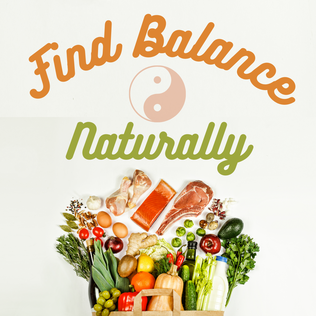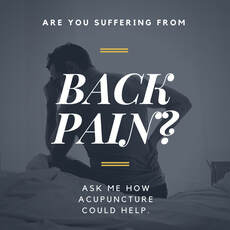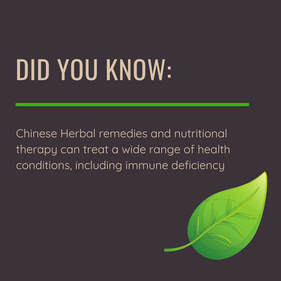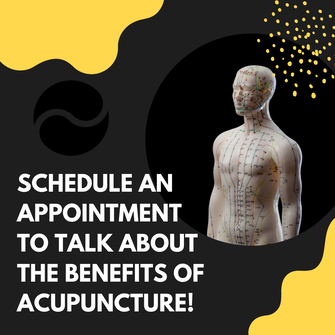 Traditional Chinese medicine (TCM) is a system that seems quite foreign to many in the Western world. However, this medical system has been around for over 3,500 years, in comparison to the Western medical system, which has been around since the 19th century. One of the concepts of TCM is that of the meridian or energetic pathways. This article will explore this concept a little more deeply. What is a meridian? This is something that every acupuncture student asks when they begin their training. The simplest definition is that a meridian is an energetic highway in the human body. Meridians allow for the flow of energy, known as Qi (pronounced “chee”), to circulate throughout the body. Meridians exist in corresponding pairs and each meridian has multiple acupuncture points along the pathway. While it is tempting to think of meridians in the body the same way we think of the circulatory system, this would be incorrect. According to TCM, the meridian pathways are responsible for the “distribution” of the substances throughout the body, but physically, meridians have yet to be identified. Therefore, it is more logical to view the meridian system as an energetic distribution network. All together there are fourteen main meridians throughout the body. One that runs up the center of the body on the front, another that runs along the spine and the other 12 run from head to toe along the rest of the body. Each limb is traversed by six channels, three that are considered yin in nature and three that are considered yang in nature. Yin channels are located on the inside surfaces and the yang channels are located on the outside surfaces. Each meridian is a yin yang pair, meaning that each yin organ (lung, heart, kidney, liver, spleen) is paired with its corresponding yang organ (large intestine, stomach, small intestine, bladder, gallbladder). In every living thing, there is yin and yang. Yin corresponds to water, darkness and cold, while yang corresponds to fire, daylight and heat. For the body to function properly, there must be balance between the yin and yang. In addition to the main meridians, there are other meridians called “Extraordinary” meridians that are not associated with the major organ systems. These meridians have very specific functions. They act as reservoirs for Qi and blood. They circulate “substances” around the body, as they have a strong connection to the kidneys. They help circulate Wei Qi, which acts as the immune system. And they provide connections between the 12 regular channels. When the Qi flows freely, the body remains healthy. However, due to outside causes like stress, the body’s meridians can become clogged or stagnant. When a blockage occurs along the meridians, illness can take hold. Acupuncture is a wonderful way to unclog the meridians. Acupuncture points, herbal formulas, exercise and proper dietary habits all work in conjunction to keep the body aligned and functioning properly. To learn more, give us a call, we’d love to help!.  Multiple studies have shown acupuncture can be very effective at managing pain. But a study performed by Albrecht et al, is probably one of the most frequently referenced studies. The researchers studied the effects of acupuncture on 424 patients who suffered with chronic shoulder pain. The analysis of the results showed acupuncture as an effective treatment, the participants reported decreased pain and increased range of motion and that it was even superior to the results achieved using conservative orthopedic treatments. This, as well as many other studies, show hope for the future of acupuncture becoming mainstream medicine in the battle against pain. THE PAIN METRIC Pain. Who hasn’t dealt with it? It is so common in the United States that it affects more people than diabetes, heart disease and cancer combined. Pain is the most common reason people go to see their doctor and also why we are currently experiencing an unprecedented opioid epidemic. Chronic pain is the most common cause of long-term disability according to the National Center for Health Statistics. Approximately one in every four Americans have suffered from pain that exceeds 24 hours. The type of pain and location of the pain will determine how it is treated when you go to see your doctor. And typically, the doctor will prescribe over-the-counter or prescription pain medications and they may also order more tests to determine if there is something more serious going on. ACUPUNCTURE AND PAIN This is where acupuncture and Traditional Chinese Medicine can work in conjunction with your primary care physician. Multiple studies have shown acupuncture can be quite effective at treating pain, both acute and chronic. In fact, the Food and Drug Administration is now urging doctors to obtain information about alternative treatment methods like acupuncture and chiropractic care. This came about in response to the opioid crisis occurring in the U.S. and killing thousands of people, including the rich and famous. Since acupuncture has no real adverse side effects when performed by a qualified and professionally licensed practitioner, pain relief can begin the very first time a patient is treated. Acupuncture treatments are very customizable because as a medicine, it’s not a “one size fits all” type of solution. This means that as the pain shifts and changes, the patient will receive customized treatments that not only address the pain and inflammation, but also work on resolving the root of the problem. Most patients who are dealing with pain also have added stress, insomnia and depression or anxiety. Acupuncture is great at treating all of these conditions. So the patient gets more than just pain relief. THE EFFECTIVENESS OF ACUPUNCTURE The stimulation of acupuncture points triggers the brain to release endorphins, which are painkilling chemicals that saturate the brain and decrease pain signals, both short-term and long-term. Acupuncture is so effective at treating and relieving pain it is now showing up in hospitals and emergency rooms. In fact, Abbott Northwestern Hospital in Minneapolis, Minnesota is now successfully using acupuncture in its emergency room to treat conditions ranging from car accident injuries to kidney stones. Their initial results show that pain scores are just as low with acupuncture as they are with those given analgesic painkillers. With these kinds of recommendations, it is hard to believe only about 10 percent of Americans have ever tried acupuncture. But that statistic is slowly changing as more and more people are seeking natural and alternative methods of dealing with pain and disease. If you suffer from pain of any kind, give us a call so we can give you the relief you’ve been seeking. SOURCE: https://www.sciencedirect.com/science/article/pii/S2005290115001545  Acupuncture is an ancient treatment modality that is backed by thousands of years of documented success. Unfortunately, it is often used as a treatment of last resort. This is because our education is grounded in western science, which has no clear explanation for why or how acupuncture works. It is unfortunate because, in comparison to surgery and prescription painkillers, acupuncture is virtually painless, side-effect free, and imposes zero additional recovery time on the patient after each treatment session is completed. When people do eventually come to acupuncture, they find it to be as, or more effective than other treatments they have tried so far. This is especially true for the treatment of chronic pain, inflammatory disorders, addiction, and more. Acupuncture in Pain Management Where this treatment modality shines is in managing pain. Acupuncture alters the way the nervous system functions, by allowing it to send fewer unnecessary pain signals to the brain. It does this by tapping into the ability of the brain and the nervous system as a whole to manage pain in healthy ways. Consider the way a small child reacts to pain compared to an adult. When children get a bump or scrape, they often cry bitterly as if they have been badly wounded. An adult’s pain response will tend to be less pronounced. This is because an adult will know on an experiential level and an intuitive level that superficial damage is not a threat to her or his existence. In short, our nervous systems mature as we do. Therefore, it can be said- based on long experience with the practice- that acupuncture can help our nervous system to develop more refined responses to pain. Common Types of Painful Illnesses That are Successfully Treated Using Acupuncture You will find that the types of pain acupuncture is best at treating are the ones that are caused by a disproportionate response of the body to injury or illness. Inflammation, for example, is what happens when the body responds to a perceived threat. But that response can be harmful if it is not properly regulated.
https://www.acufinder.com/Acupuncture+Information/Detail/What+can+acupuncture+treat+  Many have heard the question posed what came first, the chicken or the egg? But how does that concept apply to depression? It’s well-known that when we’re depressed, our motivation and interest in maintaining a healthy and balanced diet subsides in the same way our energy does. Harvard Medical Students positioned that same question in relation to depression; what came first, depression or a poor diet? Thankfully, researchers have addressed this question and found that a healthy diet was indeed associated with a significantly decreased risk of developing depressive symptoms. In fact, a study published in the Journal of Nutritional and Environmental Medicine, patients were treated for two years with antioxidants or placebos. After two years, those who were treated with antioxidants had a significantly lower depression score. WHAT DOES THIS MEAN? Eating healthy foods gives you a better chance to reduce your depressive symptoms than eating a diet of processed food that may be high in sugars and fats. Additionally, it’s known that there are approximately 10 times as many bacterial cells as human cells in the body. These bacteria serve many purposes including the curation of Vitamin K, digesting the food we consume and even regulating our immune system. This implies that maintaining a healthy gut bacteria and overall diet can improve your mood. SO, WHAT SHOULD I EAT? Suggested foods to eat are lots of green leafy plants (including fruits and vegetables), whole unprocessed grains, seeds & nuts, and lean proteins such as yogurt or fish. To break them down even further, take note of the following foods and their purpose (all of which fight depression):
WHICH FOODS SHOULD I AVOID? Avoid foods made with added sugars or flours such as baked goods (donuts and pastries), breads, pastas and cereals. One should also minimize the consumption of animal fats, processed meats such as bacon, and even butter. OTHER ITEMS TO CONSIDER It’s important to remember that health starts from within. Maintaining a healthy balance of self-care, such as providing yourself with adequate sleep, hydration and physical activity is just as important as eating well. There is an overwhelming amount of evidence that supports the benefits of a healthy lifestyle. Having balanced health helps with everything from cardiovascular disease, dementia, cancer and even mental health disorders including- you guessed it - depression! Don’t forget! Schedule an acupuncture appointment with us if you have any questions about depression and how traditional chinese medicine can help. https://www.everydayhealth.com/columns/therese-borchard-sanity-break/foods-eat-every-day-beat-depression/ https://www.health.harvard.edu/blog/diet-and-depression-2018022213309  image courtesy of Flikr image courtesy of Flikr THE STUDY A study published by the Journal of Traditional Chinese Medicine and conducted by the West China Center of Medical Sciences, found acupuncture treatments can be effective in the treatment of patients suffering from depression. According to the study, 163 participants were divided into three groups. Each group received differing forms of treatment utilizing acupuncture or acupuncture and other accessory modalities, twice a week, for a total of 12 weeks. The scale of life was used to evaluate the results at four different times, which allowed for the patients quality-of-life to be objectively followed and determined. There were eight specific items that were evaluated after each acupuncture treatment, thus leading to the overall quality of life score. The items evaluated were physical function, bodily pain, physical role, general physical condition, social function, energy, mental health and emotional function. The study showed the overall quality of life score was improved significantly in all three groups. BACKGROUND ON DEPRESSION Worldwide, nearly 350 million people suffer from depression and nearly 16 million of those are in the United States alone. Statistics show women tend to be more likely to experience depression and young adults between the ages of 18-22 are also at a higher risk. Symptoms of depression include extreme irritability over minor issues, anxiety, restlessness, irrational anger, lack of interest in everyday activities, thoughts of death, insomnia, severe fatigue, weight gain/loss, difficulty concentrating and unexplained aches and pains. When these symptoms occur for more than a few weeks, depression may be the reason behind them. ACUPUNCTURE AND DEPRESSION As shown in this study, Traditional Chinese Medicine (TCM) can be very effective in treating depression, not only short-term, but also long-term.A TCM practitioner makes a diagnosis based upon each patient, on an individual basis and treats according to the root cause(s)of the illness - treating the “whole” person, holistically, taking into account a person's physical and emotional well-being. TCM incorporates multiple modalities such as acupuncture, Chinese herbs, tuina massage, cupping and exercises like qigong to help restore balance to the body. The theory behind treating depression using TCM, all revolves around the concept of Qi (pronounced “chee”). Qi is considered the vital energy that flows through the body and animates everything. When Qi is blocked or stagnant, it will affect all aspects of a person's health. The goal of TCM is to locate and correct the imbalances which exist. THE RESULTS With all of this information on depression and TCM in mind, the results of the study concluded that the overall quality-of-life score was improved significantly in all three groups. The items evaluated were physical function, bodily pain, physical role, general physical condition, social function, energy, mental health and emotional function. Acupuncture releases endorphins and activates natural pain killers. By doing so, it improves the flow of Qi throughout the body while eliminating blockages and bringing balance to the mind and body. Endorphins counter the symptoms of depression and allow the person to resume a normal life. If you are suffering from depression and are looking for a natural way of dealing with it, give us a call, we may be able to help you navigate the waters of depression without the harmful side effects of pharmaceuticals, while helping you get back to a happier life. http://www.sciencedirect.com/science/article/pii/S0254627216300218  Now is the time of year when we want to soak in the sun and take advantage of the nice weather. Although it’s tempting to bathe in the warmth of our giant star, there are a few precautions to take to prevent skin cancer as one in five Americans are likely to get skin cancer by the age of 70. Did you know that the skin is the largest organ of the body and reflects our health and age? In today’s world, there’s more concern around sun bathing potentially leading to an increase in skin damage and skin cancer, and rightfully so! Excessive exposure to ultraviolet rays can increase the production of free radicals that can adversely affect the integrity of collagen in the skin. Over time with this type of exposure, our skin becomes wrinkled, cracked, aged, and brittle (and for smokers, the effects are multiplied). SKIN CANCER Research suggests that skin cancer is cumulative over a lifetime and begins with over-exposure throughout one's life and even serious sunburns during childhood. We can’t live without the sun - our bodies require sunlight in order to manufacture Vitamin D needed for calcium absorption, amongst other important things. As with all matters, everything is healthy in moderation, and this applies to sun exposure as well. Here are a few helpful tips and precautions to take when you’re soaking in the summertime sun. TIPS FOR SAFE SUN EXPOSURE
If you want to have fun now, and not worry later, practice good sun sense. You and your skin deserve it. |
AuthorsRebecca M H Kitzerow is a Licensed Acupuncturist practicing in La Center, Washington. With over a decade of experience she has won 10 Nattie consumer choice awards from Natural Awakenings Magazine since 2014. Archives
July 2024
Categories
All
|
Photos from Hey Paul Studios, BeGreen_Studio, Pawel Pacholec, 1950sUnlimited, toulupaliaqaz, Joelk75, OnTask, Robert Gourley, cnu_sports, Mitya Ku, wuestenigel (CC BY 2.0), FootMassagez, 401(K) 2013, Mariana Heinz, @EdwardTerry, fishhawk, liverpoolhls, torbakhopper, Boemski, dolomitibl, Driscolltheque, Dave n Laura, Vaping360, MVWorks, Life Mental Health, MVWorks, mikefats, Scot Nelson, jfl1066, wZa HK, ruurmo, Guadalupe Cervilla, Army Medicine, GViciano, torbakhopper, adrigu, Saulo Cruz, Ben Cumming, marniejoyce, kcxd, JasonCorey, kanenas.net, Live to Create Photography, gm.esthermax, Unique Hotels Group, Zenspa1, mysiana, Tobias Lindman, Leader Nancy Pelosi, Kristoffer Trolle, swanksalot, Bill Selak, Parker Knight, stimpsonjake, Gedankensprudler, SuperFantastic, tonynetone, marniejoyce, JeepersMedia, Illusive Photography, 'Ajnagraphy', Iban Torras, scotted400, gtall1, dvanzuijlekom, BPPrice, Skley, torbakhopper, Renato Ganoza, anka.albrecht, QUOI Media, Public Domain Photos, Instant Vantage, Victor Tongdee, Free Grunge Textures - www.freestock.ca, sportEX journals, Nadja Tatar, angela n., marniejoyce, MVWorks, Karolina Kabat, Thomas Fisher Rare Book Library, UofT, ginnerobot, tracilawson, haven't the slightest, My Photo Journeys, Pierre Willemin, Florena_Presse, SuperFantastic, colindunn, zzkt, TraumaAndDissociation, ER24 EMS (Pty) Ltd., shixart1985 (CC BY 2.0), marniejoyce, Tomás Fano, freestock.ca ♡ dare to share beauty, Archives New Zealand, Jaykhuang, airdrie.m, Go-tea 郭天, OnTask, wuestenigel, focusonmore.com, Disney | ABC Television Group, Andrew Gustar, Didriks, ConstructionDealMkting, charlywkarl, barnimages.com, Lel4nd, runwaypilates, michaelstephanfotografie, McLevn, TraumaAndDissociation, eLife - the journal, Lars Plougmann, wuestenigel, shixart1985, boviate, davis.steve32, kevin dooley, @the.photoguy (insta), frederic.gombert, Feathering the Nest, Victor Tondee, shixart1985, wuestenigel, Joe K Gage, kennethkonica
 RSS Feed
RSS Feed
